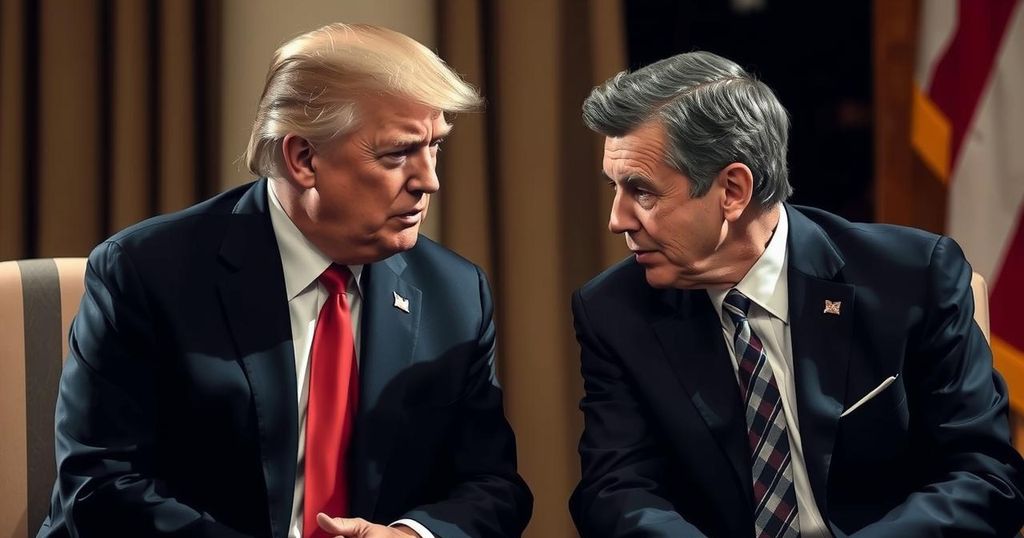Donald Trump advocates for the withdrawal of U.S. troops from northern Syria to prevent them from becoming casualties in potential conflicts between Turkey and Kurdish fighters, as expressed by Robert F. Kennedy Jr. during a recent broadcast. This policy shift raises significant questions regarding U.S. military strategy in the Middle East, particularly concerning Kurdish support.
Donald Trump, the recently re-elected president, has expressed a desire to withdraw U.S. troops from northern Syria to avoid their potential involvement in conflict between Turkey and Kurdish fighters. According to Robert F. Kennedy Jr., a close ally and commentator, Trump conveyed these intentions during a recent flight. He emphasized that the current deployment of U.S. forces, numbering around 500, could result in casualties if tensions escalate at the Syrian-Turkish border. Kennedy mentioned that Trump had indicated concern over the risk to American personnel, stating emphatically, ‘Get them out!’ This stance marks a significant shift in U.S. foreign policy in the Middle East, particularly regarding the support provided to Kurdish forces, which have been allies in the fight against the Islamic State group. During the conversation, Trump referenced the large military presence in the region, noting approximately 750,000 Turkish troops and an unclear number of Syrian forces involved in ongoing hostilities. This evolving situation raises significant questions among U.S. allies regarding Trump’s intentions and future military commitments in the region.
The backdrop of this discussion is the longstanding conflict in Syria, wherein U.S. troops have been stationed to support Kurdish forces opposing Islamic State militants. Since 2014, the U.S. has backed the Syrian Democratic Forces (SDF) in their operations against ISIS. However, these Kurdish groups are viewed as extensions of the Kurdistan Workers’ Party (PKK) by Turkey, which has instigated multiple incursions into Syria with the goal of curtailing their influence along the border. Furthermore, Syria’s government is poised to reclaim territories lost during the civil war, creating a complex, potentially volatile environment. This context amplifies the implications of Trump’s proposed troop withdrawal, altering U.S. engagement in the region significantly and potentially impacting the balance of power.
In conclusion, Donald Trump’s call to withdraw U.S. troops from northern Syria signals a notable change in U.S. foreign policy regarding military involvement in the Middle East, particularly concerning support for Kurdish forces amidst rising tensions with Turkey. This decision, articulated by Robert F. Kennedy Jr., underscores potential risks for American personnel in a fragile geopolitical climate marked by conflicting interests among regional actors.
Original Source: www.middleeasteye.net






